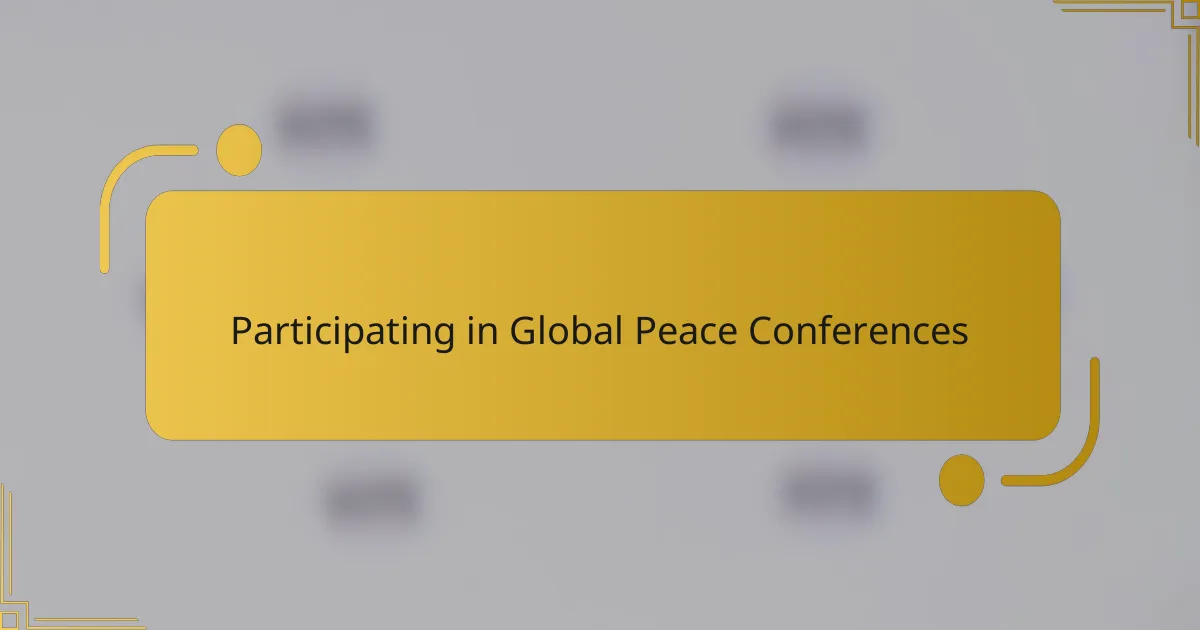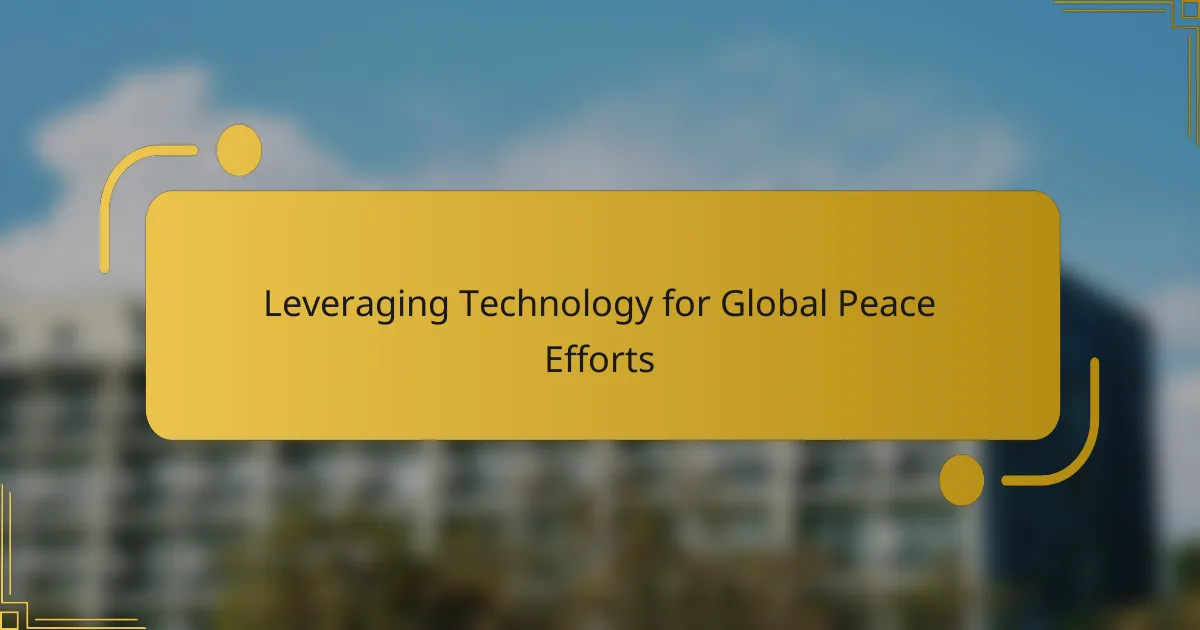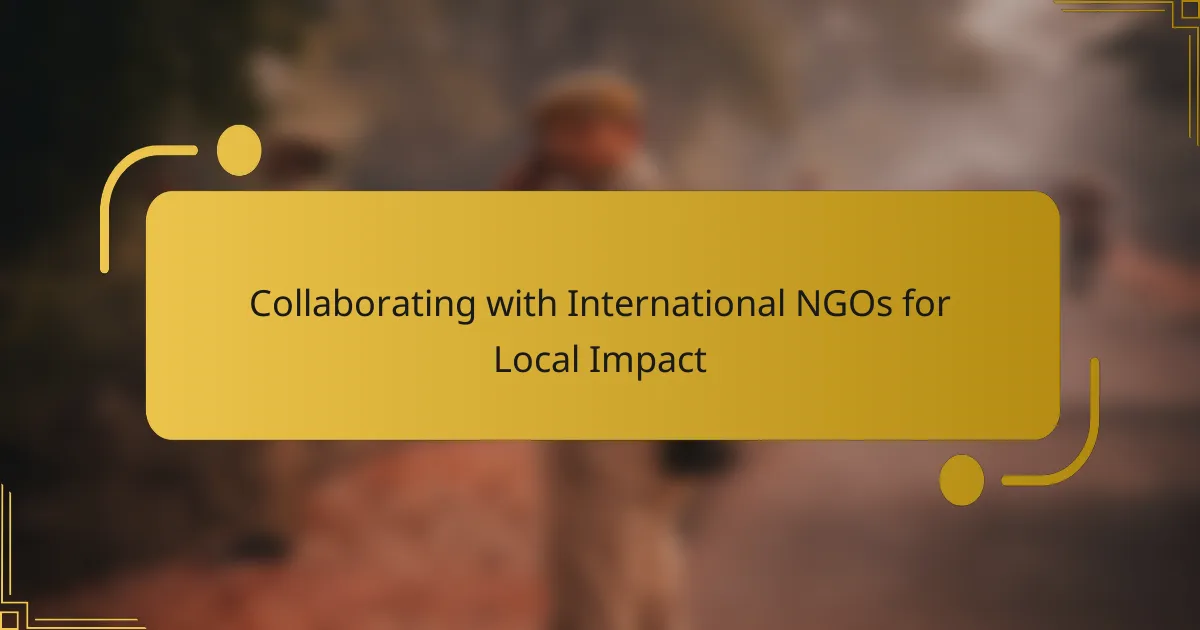Understanding the role of diplomacy in peacebuilding is essential for fostering lasting resolutions to conflicts. By promoting communication and trust among conflicting parties, diplomacy facilitates negotiations and engages local communities, paving the way for sustainable peace agreements. Key strategies such as mediation and the involvement of international organizations are vital in addressing the root causes of conflict and ensuring effective post-conflict reconstruction.

How does diplomacy contribute to peacebuilding in conflict zones?
Diplomacy plays a crucial role in peacebuilding by fostering communication and understanding among conflicting parties. It facilitates negotiations, builds trust, and engages local communities, ultimately leading to sustainable peace agreements.
Facilitating dialogue between conflicting parties
Diplomacy creates platforms for dialogue, allowing conflicting parties to express their grievances and aspirations. This communication helps to clarify misunderstandings and identify common ground, which is essential for resolving disputes.
For effective dialogue, diplomats often employ neutral mediators who can guide discussions without bias. Regular meetings and open channels of communication can prevent escalation and promote a culture of peace.
Negotiating ceasefires and peace agreements
One of the primary functions of diplomacy in conflict zones is negotiating ceasefires and formal peace agreements. Skilled diplomats work to bring parties to the table, often using incentives and assurances to encourage compliance.
Successful negotiations typically involve a phased approach, where initial agreements may focus on temporary ceasefires, followed by more comprehensive discussions on political and territorial issues. Examples include the Dayton Accords in Bosnia and the Oslo Accords in the Israeli-Palestinian conflict.
Building trust through diplomatic channels
Trust is fundamental in peacebuilding, and diplomacy helps establish it through consistent and transparent communication. By maintaining open lines of dialogue, diplomats can reassure conflicting parties that their concerns are being addressed.
Confidence-building measures, such as joint humanitarian efforts or cultural exchanges, can further enhance trust. These initiatives demonstrate a commitment to peace and can lead to more substantial agreements in the future.
Engaging local communities in peace processes
Effective peacebuilding requires the involvement of local communities, and diplomacy can facilitate this engagement. By including local voices in discussions, diplomats ensure that peace agreements reflect the needs and realities of those most affected by conflict.
Community engagement can take various forms, such as public consultations, workshops, or local peace committees. These efforts help to foster ownership of the peace process and increase the likelihood of lasting stability.
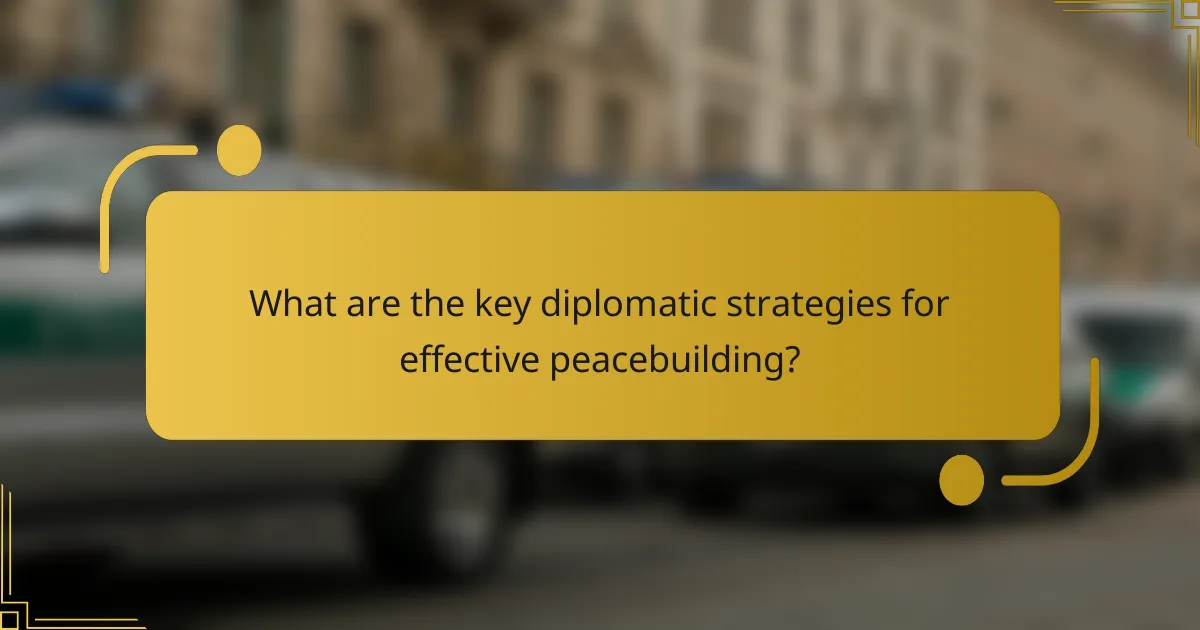
What are the key diplomatic strategies for effective peacebuilding?
Key diplomatic strategies for effective peacebuilding include mediation, the involvement of international organizations, and Track II diplomacy. These approaches facilitate dialogue, foster cooperation, and address underlying issues that contribute to conflict.
Mediation and negotiation techniques
Mediation and negotiation techniques are essential for resolving disputes and fostering understanding between conflicting parties. These methods often involve a neutral third party who helps facilitate discussions, ensuring that all voices are heard and guiding the parties toward mutually acceptable solutions.
Effective negotiation techniques include active listening, reframing issues to find common ground, and exploring creative solutions. For instance, using interest-based negotiation can shift the focus from positions to underlying interests, which may lead to more sustainable agreements.
Use of international organizations like the UN
International organizations, such as the United Nations, play a crucial role in peacebuilding by providing platforms for dialogue and collaboration among nations. They can offer resources, expertise, and legitimacy to peace processes, helping to mediate conflicts and support post-conflict reconstruction.
The UN often deploys peacekeeping missions to stabilize regions and protect civilians, while also facilitating negotiations between conflicting parties. Their involvement can enhance the credibility of peace agreements and ensure that they are more likely to be upheld.
Track II diplomacy initiatives
Track II diplomacy initiatives involve informal dialogue and problem-solving activities among non-official actors, such as academics, former officials, and civil society leaders. These initiatives can complement official diplomatic efforts by creating a space for open discussion and innovative solutions without the pressures of formal negotiations.
Examples of Track II diplomacy include backchannel communications and workshops that bring together diverse stakeholders to explore shared interests. These initiatives can help build trust, identify common ground, and lay the groundwork for official negotiations, ultimately contributing to more effective peacebuilding outcomes.
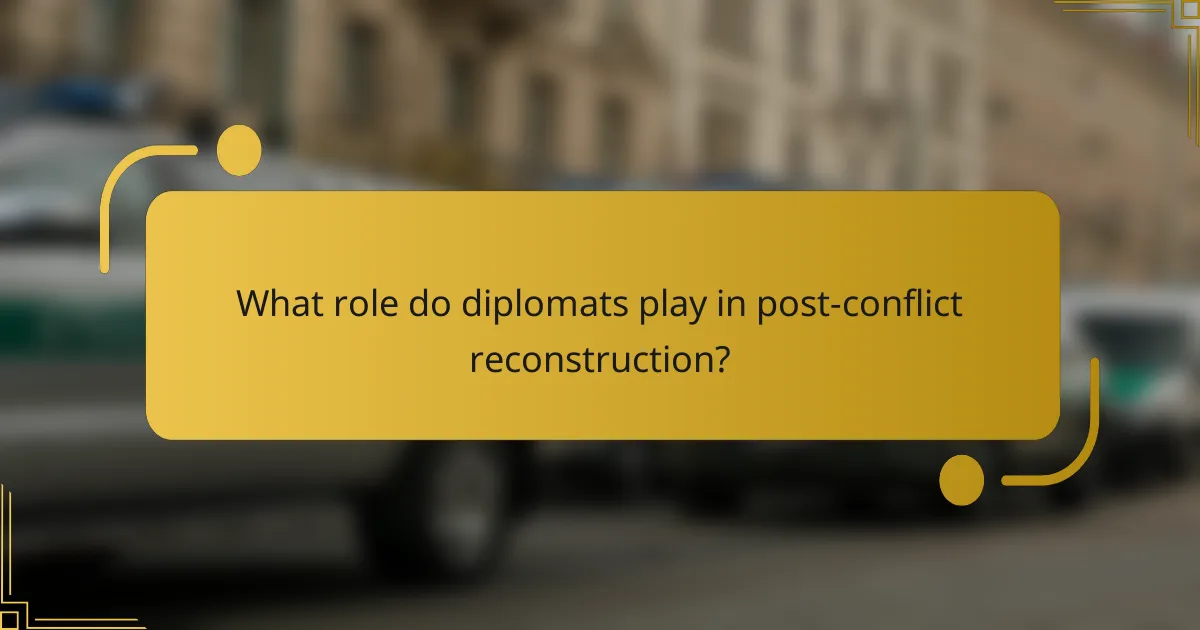
What role do diplomats play in post-conflict reconstruction?
Diplomats play a crucial role in post-conflict reconstruction by facilitating dialogue, coordinating efforts among various stakeholders, and ensuring that peace agreements are effectively implemented. Their involvement is essential for rebuilding trust, fostering stability, and laying the groundwork for sustainable development in affected regions.
Coordinating humanitarian aid and development
Diplomats are instrumental in coordinating humanitarian aid and development efforts following a conflict. They work with international organizations, NGOs, and local governments to assess needs and allocate resources effectively. This coordination helps ensure that aid reaches the most vulnerable populations and addresses immediate needs while also supporting long-term recovery.
For example, diplomats may facilitate the establishment of a joint task force that includes various aid agencies, allowing for streamlined communication and resource sharing. This collaborative approach can prevent duplication of efforts and maximize the impact of humanitarian assistance.
Supporting governance and rule of law
In post-conflict settings, diplomats support the establishment of governance structures and the rule of law, which are vital for lasting peace. They engage with local leaders and communities to promote inclusive governance and ensure that legal frameworks are in place to protect citizens’ rights. This support often includes training for law enforcement and judicial officials.
Additionally, diplomats may advocate for the incorporation of transitional justice mechanisms, such as truth commissions, to address past grievances and foster reconciliation. This process helps build trust in institutions and encourages community participation in governance.
Facilitating economic recovery initiatives
Diplomats play a key role in facilitating economic recovery initiatives by promoting investment and trade opportunities in post-conflict areas. They often engage with international financial institutions to secure funding for infrastructure projects and support local businesses. This economic revitalization is essential for reducing poverty and preventing a return to conflict.
For instance, diplomats might organize investment forums that connect local entrepreneurs with foreign investors, helping to stimulate job creation and economic growth. They also work to create favorable conditions for business development, such as improving regulatory frameworks and ensuring access to markets.
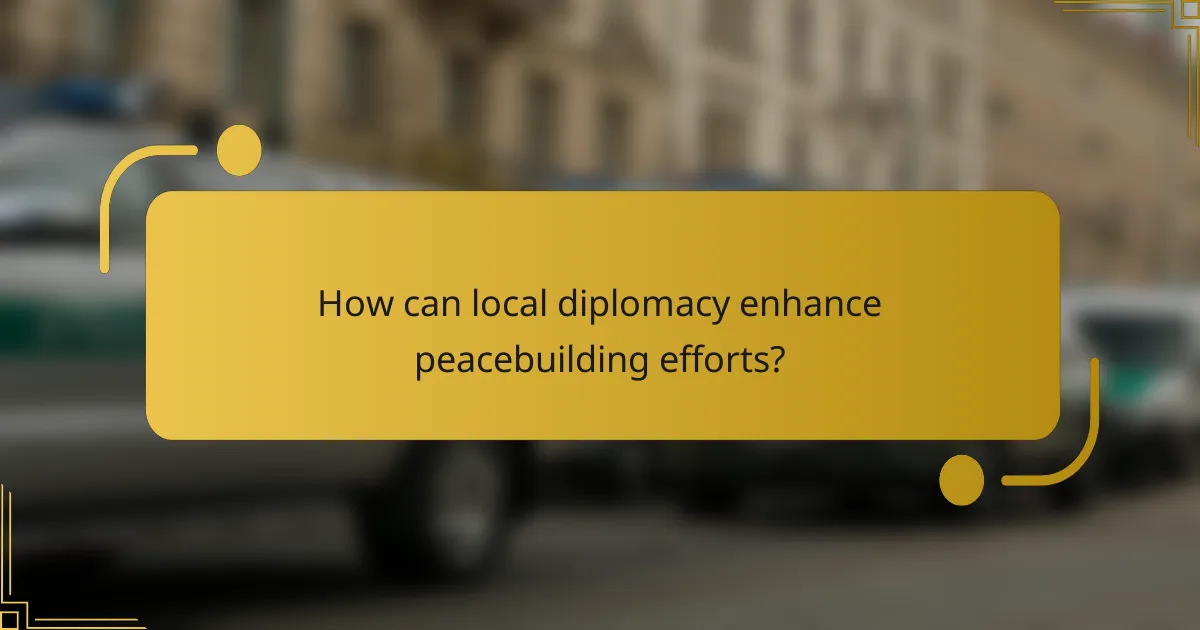
How can local diplomacy enhance peacebuilding efforts?
Local diplomacy can significantly enhance peacebuilding efforts by fostering trust and cooperation among communities. It involves engaging local stakeholders to address conflicts and build sustainable solutions that reflect the needs and aspirations of the affected populations.
Empowering grassroots organizations
Grassroots organizations play a crucial role in local diplomacy by mobilizing community members and addressing their specific concerns. These organizations often have deep-rooted knowledge of local dynamics and can effectively bridge gaps between conflicting parties.
To empower grassroots organizations, it is essential to provide them with resources, training, and platforms for dialogue. Supporting their initiatives can lead to more effective conflict resolution and a stronger sense of ownership among community members.
Promoting inclusive dialogue among diverse groups
Inclusive dialogue is vital for peacebuilding as it ensures that all voices, especially marginalized groups, are heard in the decision-making process. This approach helps to build consensus and reduces the likelihood of future conflicts.
Facilitating inclusive dialogue requires creating safe spaces for discussions and employing skilled mediators who can navigate sensitive topics. It is beneficial to use methods such as community forums or workshops to encourage participation from various demographics, including women, youth, and ethnic minorities.
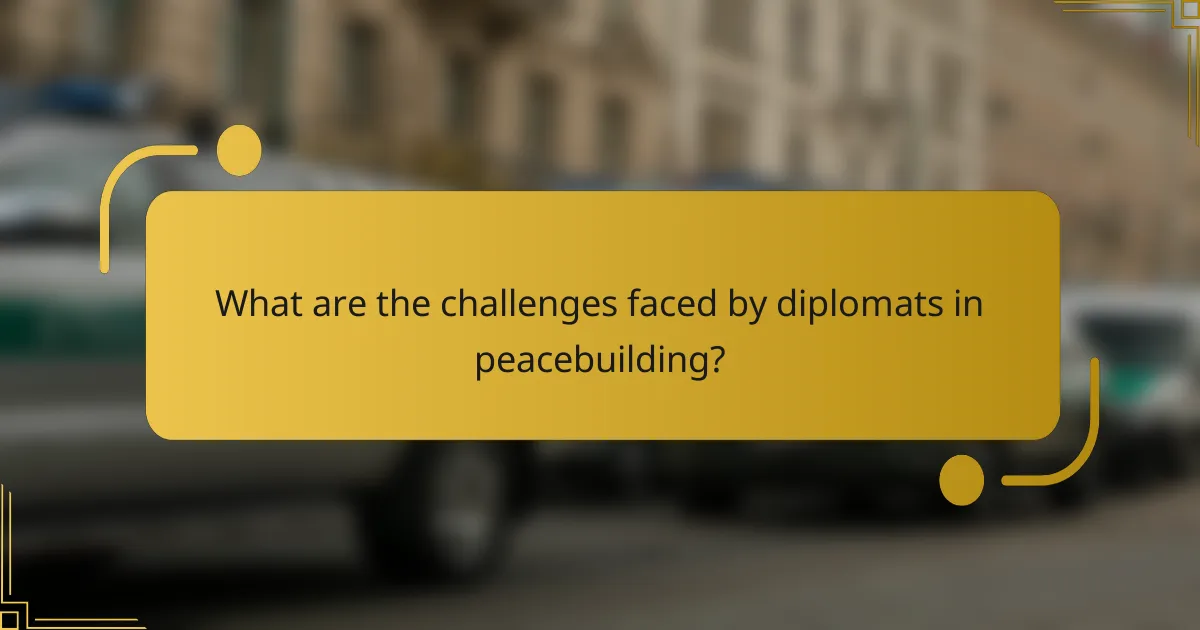
What are the challenges faced by diplomats in peacebuilding?
Diplomats encounter several significant challenges in peacebuilding, including resistance from conflicting parties, limited resources, and the complexity of local dynamics. These obstacles can hinder effective negotiation and compromise, making the peacebuilding process more difficult.
Resistance from conflicting parties
One of the primary challenges for diplomats is overcoming the resistance from the parties involved in the conflict. Each side may have deeply entrenched positions, making it difficult to reach a consensus. Diplomats must employ negotiation strategies that encourage dialogue and foster trust, which can be a slow and delicate process.
Building relationships with key stakeholders is crucial. This often involves engaging in informal discussions and understanding the underlying grievances of each party. Successful diplomats are adept at finding common ground and facilitating compromises that address the concerns of all involved.
Limited resources and funding
Diplomats often face constraints due to limited resources and funding for peacebuilding initiatives. Financial support is essential for implementing programs that promote stability and reconciliation. Without adequate funding, efforts may be stalled or ineffective.
To mitigate this challenge, diplomats can prioritize initiatives that require minimal investment yet yield significant impact. Collaborating with international organizations and NGOs can also provide additional resources and expertise, enhancing the overall effectiveness of peacebuilding efforts.
Complexity of local dynamics
The complexity of local dynamics presents another significant challenge for diplomats in peacebuilding. Each conflict is influenced by a unique set of historical, cultural, and social factors that must be understood to navigate the peace process effectively. Misreading these dynamics can lead to failed negotiations and renewed conflict.
Diplomats should invest time in conducting thorough assessments of the local context. Engaging local leaders and communities can provide valuable insights and foster a sense of ownership in the peacebuilding process. This approach not only enhances the legitimacy of the efforts but also increases the likelihood of sustainable peace.
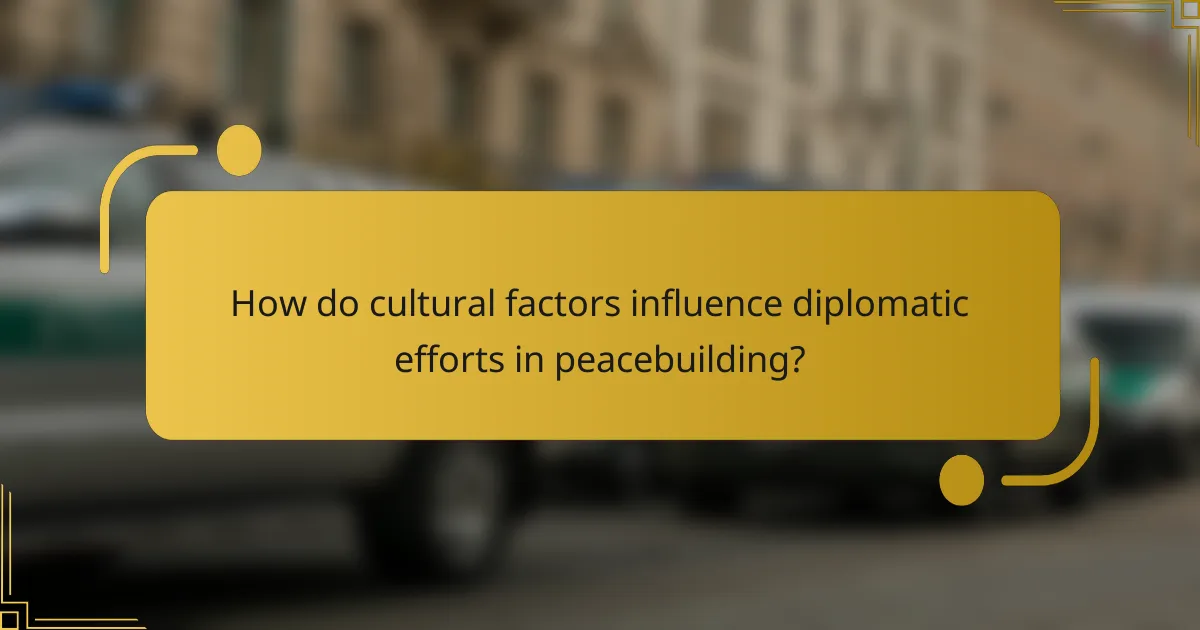
How do cultural factors influence diplomatic efforts in peacebuilding?
Cultural factors significantly shape diplomatic efforts in peacebuilding by affecting communication styles, negotiation tactics, and relationship-building practices. Understanding these cultural nuances can enhance the effectiveness of diplomatic initiatives and foster trust among conflicting parties.
Understanding local customs and traditions
Local customs and traditions play a crucial role in how diplomacy is conducted in peacebuilding contexts. For example, in some cultures, indirect communication is preferred, while others may value directness. Recognizing these preferences can prevent misunderstandings and facilitate smoother negotiations.
Additionally, traditional practices such as communal gatherings or rituals can serve as platforms for dialogue and reconciliation. Engaging with these customs can demonstrate respect and commitment to the local culture, which is vital for building rapport and trust.
When planning diplomatic efforts, consider incorporating local customs into the process. This might include scheduling meetings around significant cultural events or using culturally relevant symbols in communications to resonate with local stakeholders.

